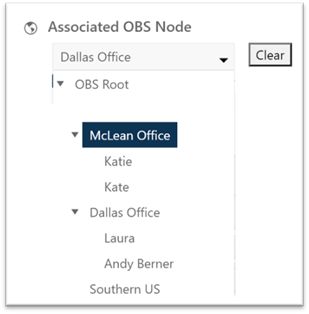
The Access tab is used to grant access to individual
projects created and stored in SLIM-Collaborate. Because templates are used to
transfer preconfigured settings to new projects, the settings on the access tabs
for projects and templates are identical.

Ensuring access to features and project data in
SLIM-Collaborate is a two-step process:
•First, generic access to projects in a given stage is granted via a user’s default role. For example, before a user can be granted access to even one project in the Estimation stage, he MUST have View, Contribute, or Full Access to the Estimation service in his default user role. Note that having generic access to the Estimation service is only a prerequisite – by itself, the Estimation Service permissions do not grant permission to even a single project in the Estimation stage.
•Next, specific access (to individual projects) is granted via each project’s Access Settings. Users can gain access to projects though being assigned Primary Responsibility for the project (requires Manage Projects permissions in the user’s default role), via membership in the project’s OBS node, or by being added to the project’s User Access list. Because the permissions in a given user’s default role may not match the access required to work with every project, SLIM-Collaborate provides a way to “overrule” a user’s default access for one or more projects:
o At the OBS Node Level. When a user is assigned to an OBS node, his default role can be overridden to grant a different set of permissions that only apply to projects assigned to that OBS node. Because the override applies only to projects assigned to the OBS node, it is not possible to grant system-level permissions (like Manage Projects or Site Management) via OBS node assignment.
o At the Project level. A user’s default role may be overridden when granting individual project access via the User Access List (Edit Project/Template | Access tab). In this case, the override applies ONLY when working with the individual project.
These concepts are explored in more detail in the next few topics.